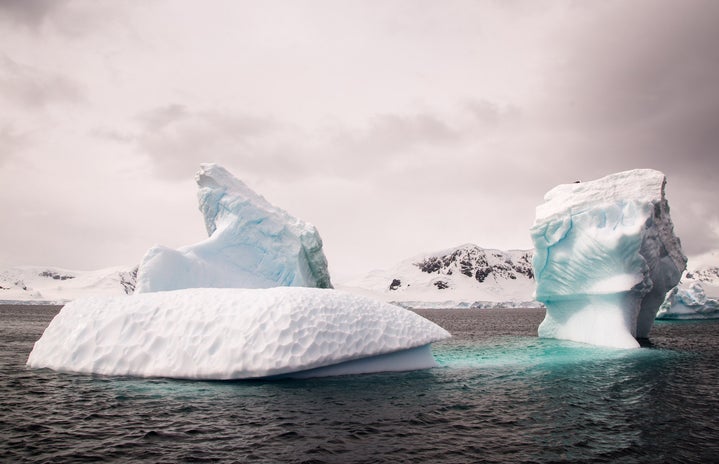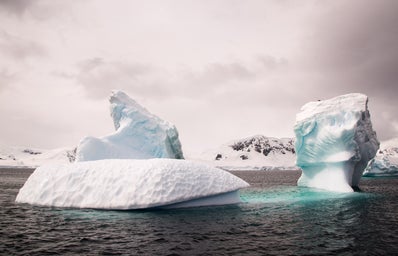With the COVID-19 pandemic flooding news headlines and social media feeds, it’s easy to forget about what else is going on in the world. Climate change has been affecting our planet for years and it’s recently created another major issue. Due to warm temperatures, the snow in Antarctica has slowly been turning green and it can be seen from outer space (USA Today). Climate change will unfortunately continue to be a constant threat to the environment but it can also be tamed with proper education and plans that are implemented very strategically.
The reasoning behind the green snow is algae which is known to flourish in warm climates, specifically in 32 degree fahrenheit or higher (USA Today). So how exactly are increasing temperatures connected with the widespread algae? This is a large and interesting issue that is ahead of scientists but the factors that are involved is fairly simple. As the ice in Antarctica melts, more water is produced, meaning it will naturally help the algae to grow (CBS News). The animals also play an important role in algae growth. According to research done by the University of Cambridge (mentioned in a CBS News article), “0ver 60% of algae blooms were found within three miles of a penguin colony. Scientists hypothesize this may be due to their droppings, which act as a highly nutritious fertilizer” but can slowly start to lose nutrients over time as birds and other various animals become more accustomed to it.
It’s difficult to predict what the expected outcome will be with the algae in the future but what researchers like Dr. Andrew Gray (University of Cambridge) predicts that it will increasingly spread. Algae in Antarctica has actually been noticed since 2018 but it’s not until this year that it’s suddenly increased. Algae might seem like a minor issue to some, but it’s more detrimental to the environment than expected. For instance, “the amount of algae found by the team creates a carbon sink that absorbs about 500 tons of carbon each year, the equivalent of about 875,000 average car journeys in the U.K.” (CBS News). Antarctica and its wildlife has been hurt by climate change in the past and algae growth is sadly another factor of temperatures increasing.


